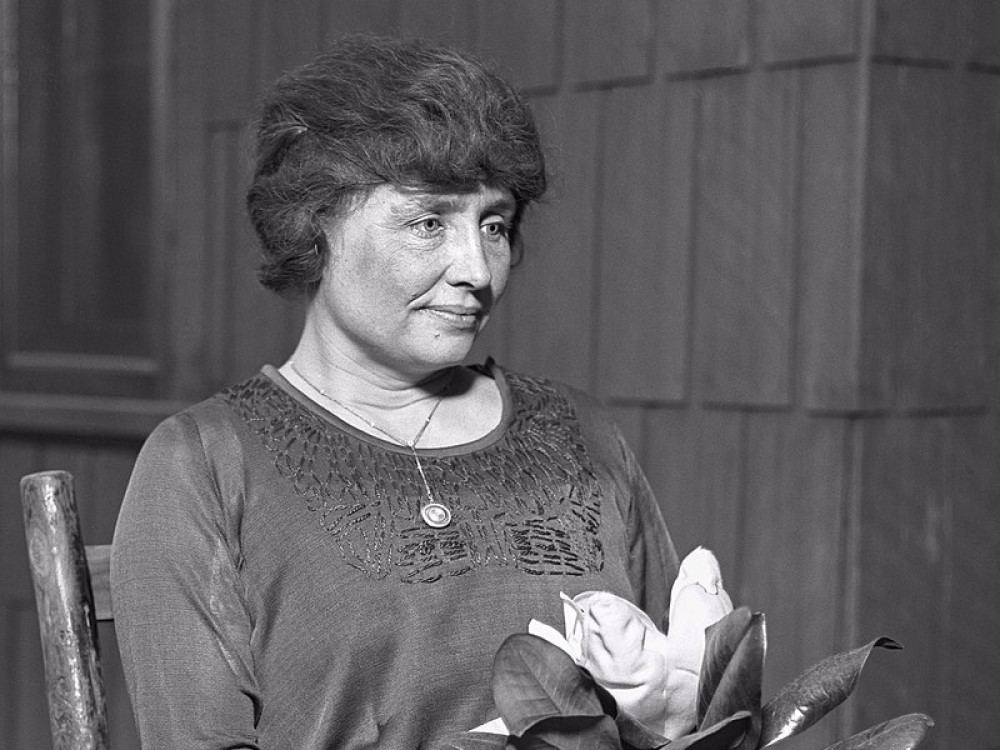
Helen Keller was an American author, disability rights advocate, political activist, and lecturer who lived from 1880 to 1968. She was an advocate for women's suffrage and rights, labor rights, and world peace. She was also an early supporter of the NAACP and Co-founder of the American Civil Liberties Union (ACLU).
At the age of 19 months, Keller was afflicted with an illness that left her deaf and blind. As a child, her frustration with not being able to communicate led to erratic behavior and emotional outbursts. When she was seven, she was introduced to her teacher, Anne Sullivan, who was also blind. Their relationship reached beyond education, and the two became lifelong companions. Sullivan taught Keller how to read, write, and understand language. The story of their relationship was made famous by Keller's 1903 autobiography, The Story of My Life, and its adaptations for film and stage, “The Miracle Worker.”
Keller attended both special and mainstream schools and eventually went on to attend Radcliffe College of Harvard University. She became the first deafblind person to graduate and earn a Bachelor of Arts. Keller was determined to be able to communicate with others and after learning to speak went on to give lectures about her life.
In 1946, she began touring internationally on behalf of the American Foundation for Overseas Blind (later Helen Keller International). Over the course of 11 years, she toured 35 countries, expanding her advocacy for people with vision impairment. Her efforts to improve the treatment of deaf and blind people were instrumental in removing the differently-abled from asylums. She worked for the American Foundation for the Blind from 1924 until her death in 1968.
Keller has been seen as a radical throughout American history. She was a vocal member of the Socialist Party and supported causes that opposed military intervention. She spoke and wrote about women’s rights and wanted children born into poor families to have the same opportunities to succeed that she had enjoyed. She received the Theodore Roosevelt Distinguished Service Medal and the Presidential Medal of Freedom, and was elected to the Women's Hall of Fame in 1965.
